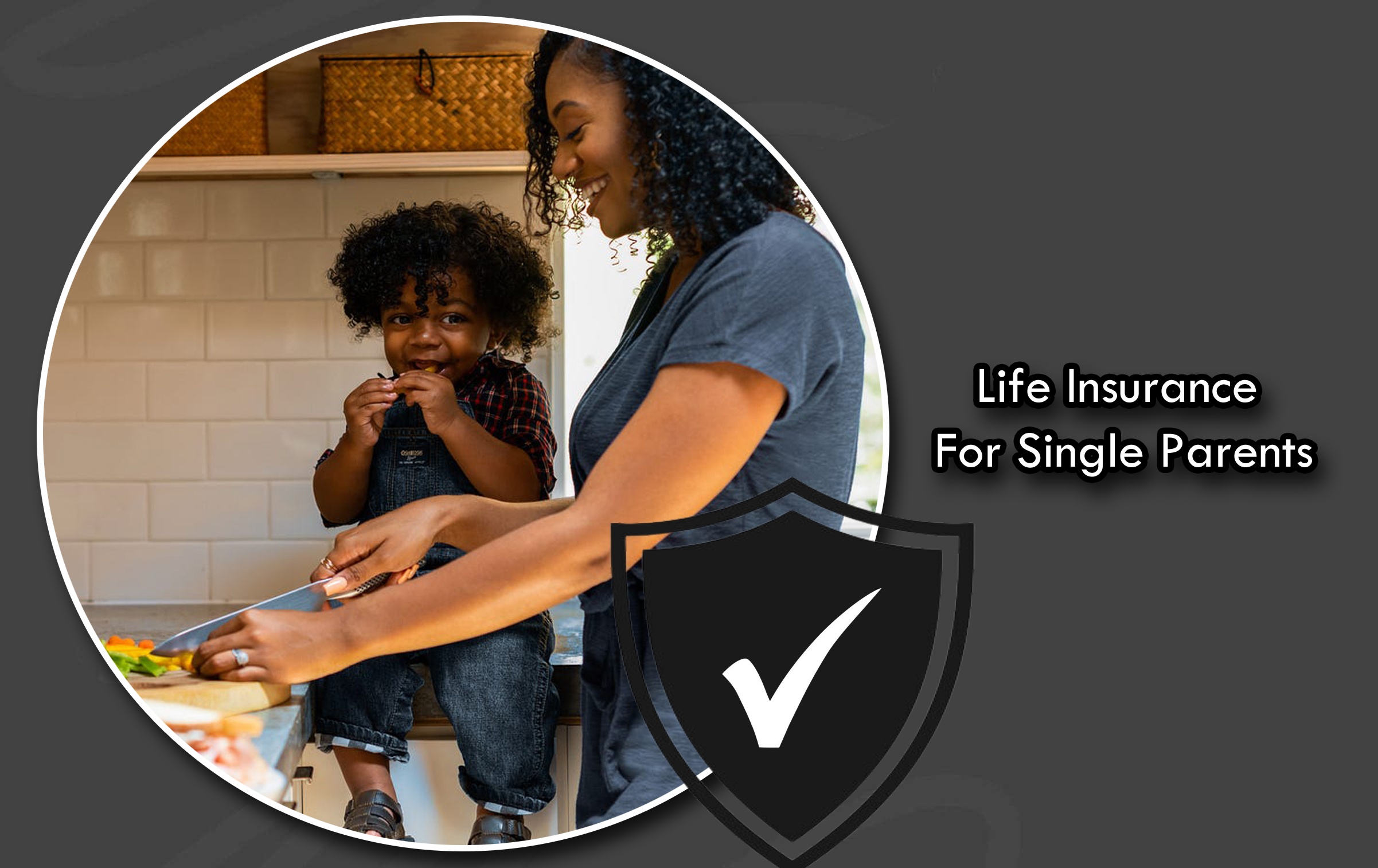
Life insurance for single parents – As a single parent, your child’s safety and well-being are always your top priorities. While in two-parent households, the surviving parent can provide financial support if the other passes away, the situation is different for single parents. This is why having life insurance is important.

Life insurance provides a safety net, ensuring your child is financially protected. It can help cover important expenses, such as college tuition, and replace your income, so your child doesn’t struggle with finances.
Moreover, it can take care of any outstanding debts, giving your child peace of mind until they are old enough to manage on their own.
For these reasons, exploring life insurance options as a single parent is an essential step in securing your child’s future.
Type Of Life Insurance For Single Parents
As a single parent, if you want to take life insurance, there are two different types of policy you can choose from. They include term life insurance and whole life insurance.
Term Life Insurance
Term life insurance can be the best choice for some people. This type of insurance lasts for a set period, usually between 10 and 30 years.
If the policyholder dies during that time, the insurance company pays a death benefit to the beneficiaries.
It is the most affordable and simple option that insurance companies offer. Single parents can also get this type of insurance through their employer as part of their benefits package.
Whole Life Insurance
Whole life insurance, also known as permanent life insurance, provides coverage for your entire life.
No matter your age, as long as you keep paying the premiums, it will pay death benefits to your beneficiaries when you pass away.
While it is more expensive than term life insurance, it includes a cash value benefit that you can withdraw or borrow. This cash value can be used for retirement or other financial needs.
Why Do Single Parents Need Life Insurance?
As mentioned earlier, life insurance is especially important for single parents compared to two-parent households. Without you, your child may face financial challenges.
To prevent this, life insurance helps ensure your child is taken care of after your death. The policy pays out death benefits to your beneficiaries. This then can be used for expenses like food, clothing, housing, paying off debts, and covering college costs.
How Much Life Insurance Do Single Parents Need?
Choosing the right amount of coverage as a single parent can be challenging. You’ll want to buy enough to support your children until they can financially take care of themselves.
Estimating how much coverage they’ll need as they grow older can be difficult. While buying less coverage is cheaper, it might not be enough.
On the other hand, buying more than you need will increase your premium costs.
How To Select The Right Coverage
When choosing the right life insurance coverage as a single parent, it’s important to consider factors like your budget and savings.
If you’re going through a divorce, it’s wise to include life insurance premium payments in the divorce settlement, though many parents overlook this.
Term life insurance is often a good option if you need affordable coverage that fits your finances.
However, if you want lifetime coverage for your child, you can switch to a whole life insurance policy later.
Should I Take Life Insurance For My Child?
In many cases, buying a life insurance policy for your child may not be necessary. However, there are situations where a child may develop health issues that make it difficult for them to get a policy when they grow older.
If you’re considering insurance for your child, you might look into a child policy rider that can be added to your own policy.
This rider will provide coverage for your child as long as your policy remains active and premiums are paid.
What Is The Proper Average Amount Of Life Insurance For Single Parents?
Generally, the amount of life insurance recommended for single parents is at least 10 times their annual salary.
This figure can serve as a solid starting point for providing for your children, but it may not be suitable for everyone.
To determine the best coverage for your situation. It’s a good idea to consult with a family member, financial advisor, or insurance agent for guidance.